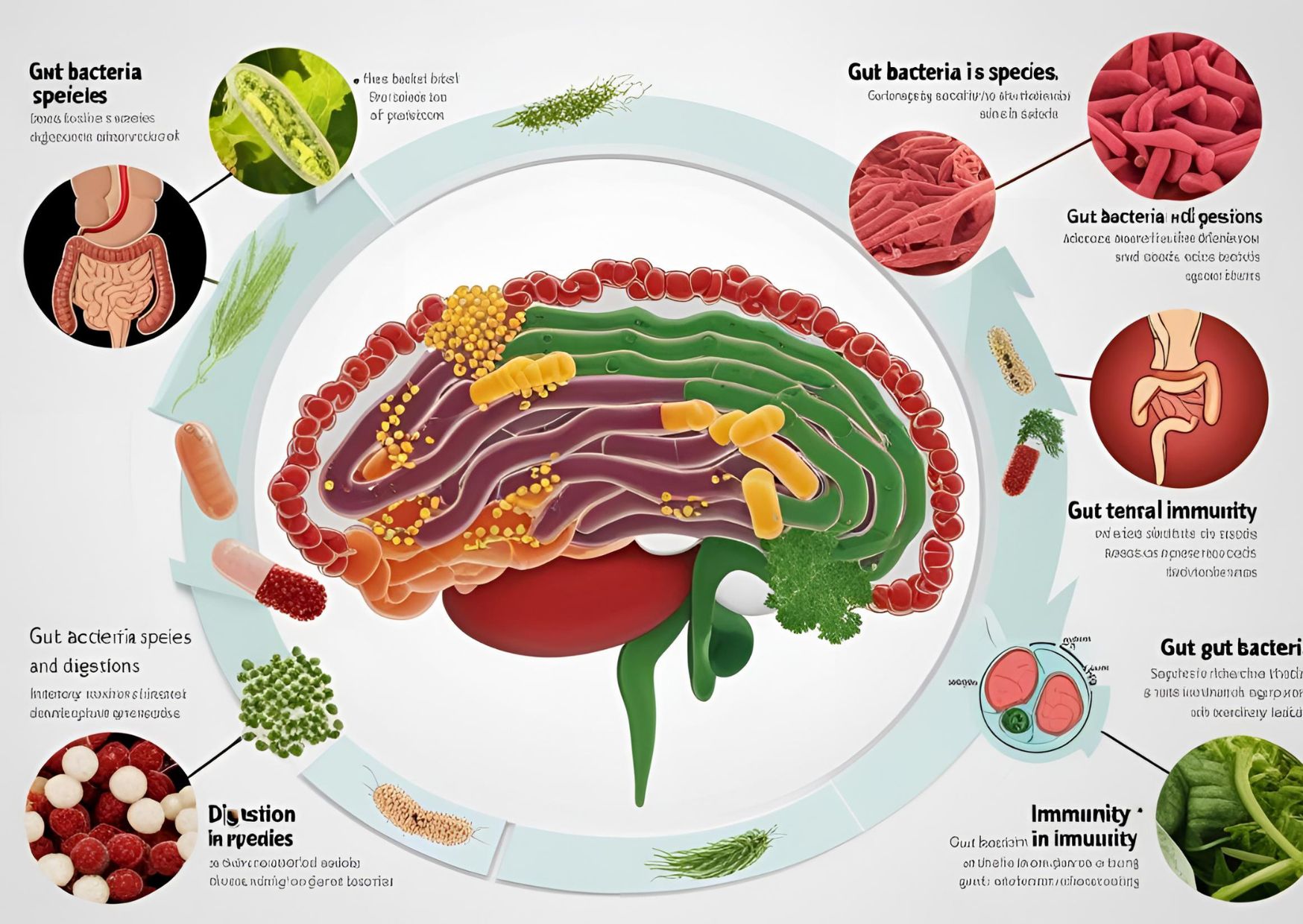How Gut Bacteria Control Your Mental Health [2025 Science]
A remarkable number of people – between 30% and 40% – deal with functional bowel problems that link directly to anxiety and depression. The human gut’s connection to mental health isn’t random. Scientists have found that there was an intricate network of over 100 million nerve cells in our gut that maintain constant communication with our brain.
Research demonstrates how the gut-brain connection serves as a vital part of stress management, mood regulation, and behavior control. The latest studies of gut microbiome and mental health show that certain bacteria create signaling molecules with direct effects on brain function. Scientists have also found that people struggling with depression tend to have lower levels of key gut bacteria. This is especially true for bacteria that produce butyrate – a compound that people associate with a better quality of life.
This detailed piece explores the sort of thing I love about the gut bacteria-mental health connection. You’ll find the newest scientific findings, mental health conditions affected by gut health, and practical steps to boost both your digestive and psychological wellbeing.
The Basic Science of Gut-Brain Connection
“The gut microbiome adds a whole new dimension of complexity and possibilities to our brain-gut emotion-generating machinery.” — Emeran Mayer, Professor of Medicine, Physiology and Psychiatry at UCLA
Your body contains an amazing communication network between your digestive system and brain. Scientists have found more nerve cells in the gut than anywhere else outside the brain.
What is the gut-brain axis
A sophisticated two-way communication system connects your central nervous system with your gastrointestinal tract. This network has the central nervous system, autonomic nervous system, enteric nervous system, and the hypothalamic-pituitary-adrenal axis. The enteric nervous system, known as the “second brain,” contains over 500 million neurons that run through the gastrointestinal tract from the esophagus to the rectum.
Key players in gut-brain communication
The vagus nerve acts as the main communication highway between your gut and brain. This nerve watches organ conditions and keeps balance by sending sensory information about the gut’s environment to the brain. The nerve’s specialized endings respond to gut signals like nutrient levels, digestive enzymes, and inflammation markers.
The hypothalamic-pituitary-adrenal axis coordinates how your body responds to stress. This system releases cortisol through a series of hormonal signals when activated. Your enteric nervous system works on its own within the gastrointestinal tract and controls basic digestive functions.
How bacteria send signals to your brain
Your gut bacteria talk to your brain through several complex pathways. These tiny organisms make various brain-influencing neurotransmitters that include:
- Serotonin – While 90-95% of the body’s serotonin resides in the gastrointestinal tract, gut bacteria influence its production through small molecules and secondary bile acids
- GABA – The primary inhibitory neurotransmitter, produced by several bacterial species, especially members of Bifidobacterium and Lactobacillus genera
- Dopamine and norepinephrine – Present mainly in the colonic lumen, these neurotransmitters affect stress response and social behavior
Bacteria create short-chain fatty acids that bind to specific receptors on intestinal cells. These compounds can cross the blood-brain barrier and affect brain function directly. Your gut bacteria can activate immune system cells in the intestinal wall, which send signals through nerves to the brain.
Studies show that gut bacteria’s products can enter your bloodstream just like food nutrients travel from the gut into circulation. Some bacteria produce oxytocin, a hormone that boosts social behavior, while others make substances that affect depression and anxiety levels.
How Your Gut Bacteria Shape Your Mood
Scientists have found that gut bacteria make compounds that affect our emotional well-being. These tiny organisms create a complex relationship between our digestive system and brain function.
The role of good bacteria
Good gut bacteria work as tiny chemical factories that make important neurotransmitters to regulate mood. The body’s serotonin, a key mood regulator, comes mostly from the digestive tract – about 90% of it. These bacterial species help make serotonin through their metabolic processes.
Research shows that certain bacterial populations like Prevotella have strong links to emotional well-being. These helpful bacteria can improve mental health by:
- Making short-chain fatty acids that strengthen gut barrier integrity
- Creating building blocks for essential neurotransmitters
- Supporting healthy immune system responses
- Keeping cortisol levels stable during stress
Impact on stress response
Gut bacteria and stress response work together through complex mechanisms. Changes in gut microbiota can affect emotional behaviors like depression, anxiety, and stress-related responses. The types of bacteria in your gut play a vital part in how you handle psychological pressure.
Clinical studies show that taking probiotics can help reduce stress symptoms. People who ate fermented foods with probiotics showed better mood and changes in how their brains processed emotions. Another study found that probiotics decreased social anxiety symptoms, especially in people who tend to be more neurotic.
Gut microbiome
The gut microbiome’s effects on stress go beyond immediate reactions. Even mild stress can change gut bacterial makeup within hours. These stress-related changes in gut bacteria might create a cycle that affects future stress responses and emotional control.
People with diverse gut bacteria handle stressful events better. This happens because of reduced inflammation and a stronger gut barrier. People with less diverse microbiomes often face more gut problems during stressful times, which can lead to a leaky gut.

